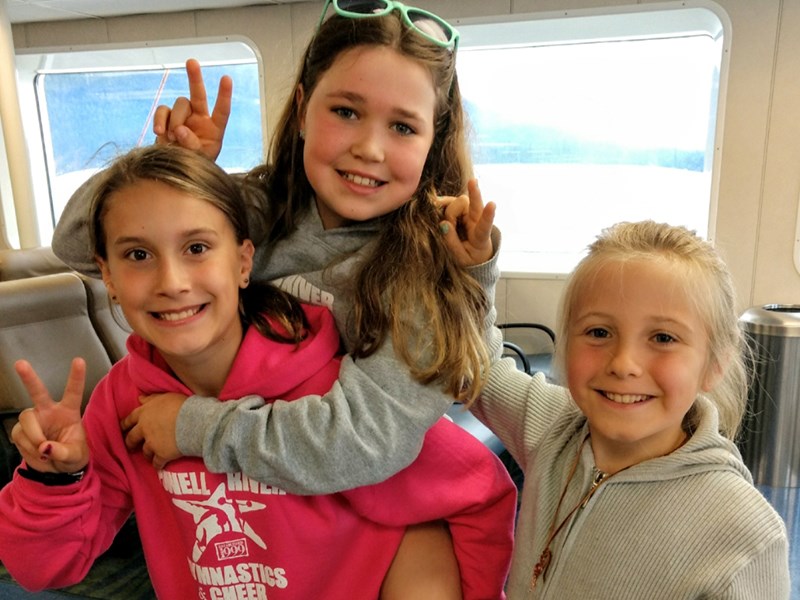Three young girls from Powell River recently returned from summer adventures at their first-ever weeklong sleepaway camp on the lower Sunshine Coast. Osha North, Kiearrah Hobbs and Kyla Randle, all age 10 and students at Westview Elementary School, attended Camp Kakhamela, a camp specifically for children with type one diabetes.
Osha had previously participated in a diabetic camp with her family on Quadra Island, but going independently was a totally new experience for all the children and their parents.
“This was the first year for the girls to go off and do this on their own,” said Osha’s mother Amy Price.
Heading off to camp can be a big deal for any child, but for those with type one diabetes there is a lot more to consider.
“Kyla was diagnosed at age two,” said her mother Natalie Newfield. “She hasn’t been away from us for one day. It was huge for all of us.”
The camps are run by a team of health-care professionals. Pediatric endocrinologists, doctors, registered nurses, diabetic educators and dietitians, many whom are also type one diabetics, provide the children with the highest level of diabetes education and management.
“They’re volunteering because they understand and they want to help the kids,” said Newfield.
Despite knowing the children were in good hands, it was still a difficult goodbye, said Price.
“We were so hesitant to walk away because we’ve never really been able to do that before,” she said, adding that there was no communication during the camp unless there was an emergency. “It was literally, no news is good news.”
Being diagnosed with type one diabetes introduces children to a new reality that can often make them feel different from their friends. Osha, Kyla and Kiearrah were all under age five when they received their diagnoses and are lucky to all attend the same elementary school, said Newfield. But for many children there is no one else in the school or community who has diabetes, which can make it difficult to acknowledge it openly, she added.
At D-Camp young campers get a break from feeling different.
“They’re all the same,” said Price. “Even just checking [blood sugar] in public. When you’re at diabetes camp it’s just run-of-the-mill for everybody. Everybody's normal. That’s big for them, probably even more than they can fathom.”
Children learn and are empowered to manage their diabetes themselves. Everything from testing blood-glucose levels, priming a needle for injection and inserting a pump site is covered, as is learning how to count carbohydrates and maintain a balance between food, insulin and activity.
“At snack time I learned an apple has 15 carbs,” said Osha. “I learned a little bit about carb counting and doing site changes.”
Price said the difference in Osha’s self-assurance was evident when she returned from the camp.
“I noticed a change in confidence right away,” said Price. “Before she had needed help with her omnipod (insulin pump) and last night she knew how to do it by herself. This was something that she learned to do while they were there.”
Diabetes Canada's camps started in 1953 with Camp Banting. The organization now operates 12 overnight camps across Canada and 10 family camps. Like any camp, the best part for the young campers was all the fun activities they participated in.
“We went swimming, kayaking, did archery, rock climbing, went for forest walks, and had talent shows and skits,” said Kyla.
The girls are already looking forward to next summer’s camp, said Osha.
“The most fun was meeting all the people in our cabin,” she said, “meeting all the friends.”



